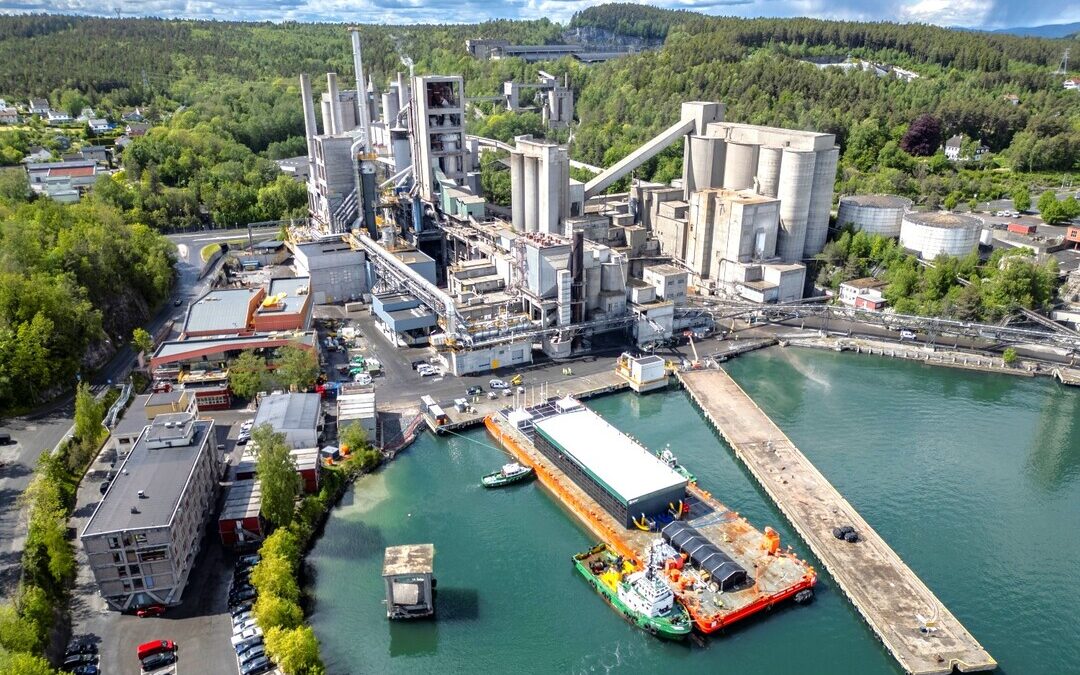Brevik Plant in Norway Launches World’s 1st CCS Facility for Cement Industry
First carbon capture facility in cement industry aims to slash emissions and deliver net-zero concrete across Europe.
Heidelberg Materials on Wednesday inaugurated the world’s first industrial-scale carbon capture and storage facility in the cement sector at its plant in Brevik, Norway, marking a major step toward decarbonizing one of the world’s most emissions-intensive industries.
According to a press statement, the Brevik CCS plant is expected to capture around 400,000 tonnes of carbon dioxide annually, accounting for roughly half the plant’s emissions.
The launch event was attended by H.R.H. Crown Prince Haakon of Norway, who unveiled a commemorative concrete plaque, and Norwegian Energy Minister Terje Aasland, alongside more than 320 guests, including industry leaders and international officials.
Part of Norway’s Longship project
The facility forms part of Norway’s Longship project, which aims to create Europe’s first full-scale value chain for capturing, transporting and storing CO₂ from hard-to-abate sectors.
Once captured, the CO₂ will be liquefied and shipped to the Northern Lights facility in Øygarden, where it will be transported by pipeline for permanent storage beneath the North Sea.
“Today marks a historic milestone and tectonic shift in the built environment,” said Heidelberg Materials CEO Dominik von Achten. “Supplying net-zero concrete is no longer a future ambition but a reality.”
Production of evoZero cement begins
Initial volumes of CO₂ have already been captured and temporarily stored as part of the plant’s ramp-up phase. Heidelberg Materials said deliveries of evoZero — its carbon-captured cement — will begin later this year, enabling production of net-zero concrete for the European market.
“Brevik CCS is a powerful example of how businesses and government can work hand in hand to pave the way for a more sustainable future,” said Aasland.
Blueprint for industry-wide change
Constructed over more than 1.2 million work hours with up to 400 on-site personnel, the facility is considered a model for CCS deployment across the global cement industry.
It was integrated into the existing Brevik plant without interrupting ongoing production, with 30 new employees hired and trained to operate the CCS unit.
“This is not just a technical masterpiece, but a concrete example of industrial leadership on climate issues,” said Giv Brantenberg, general manager of Heidelberg Materials Northern Europe.
Brevik CCS is the first of several planned CCS and carbon capture, utilization and storage projects across Heidelberg Materials’ global portfolio, as the company seeks to scale up climate technologies and help decarbonize construction materials.
Nirmal Menon
Related posts
Subscribe
Error: Contact form not found.


